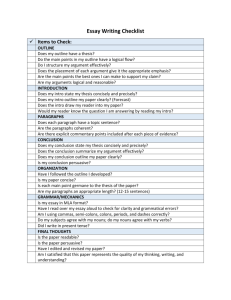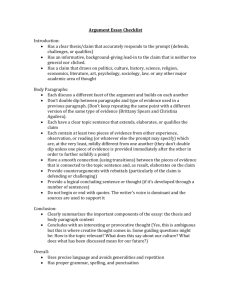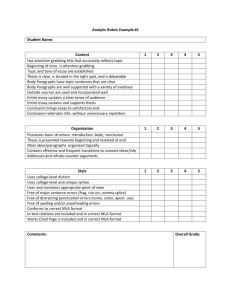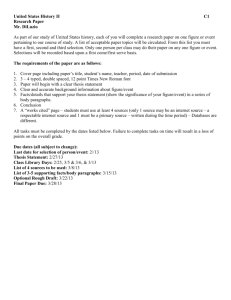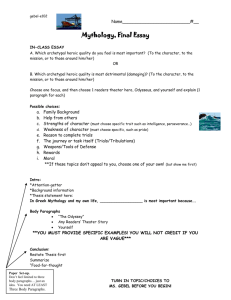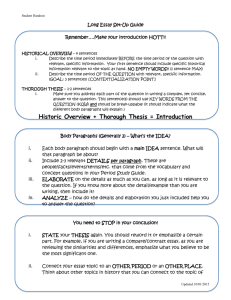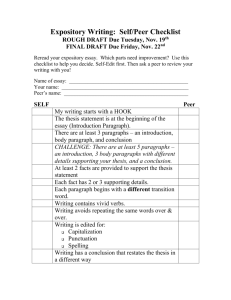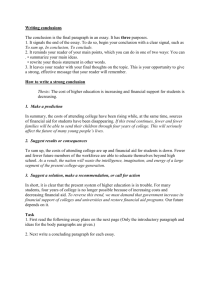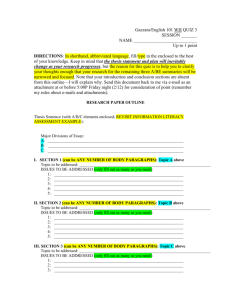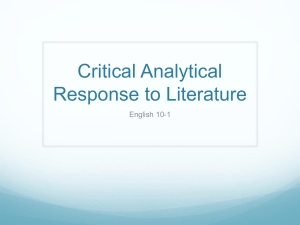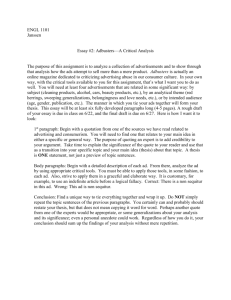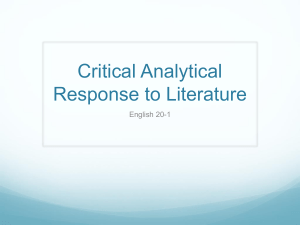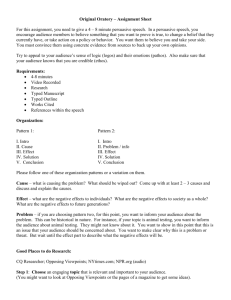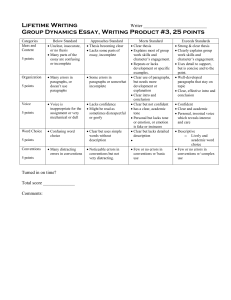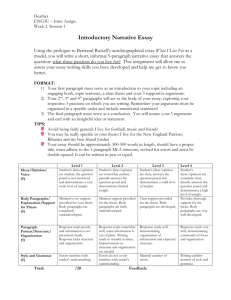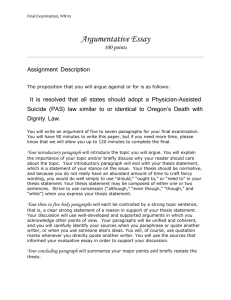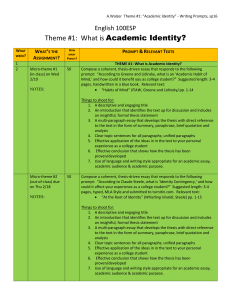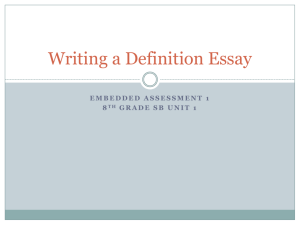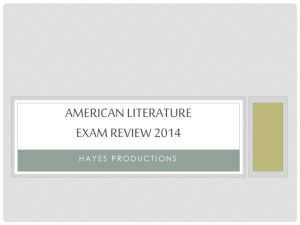Outline Template: Narration
advertisement
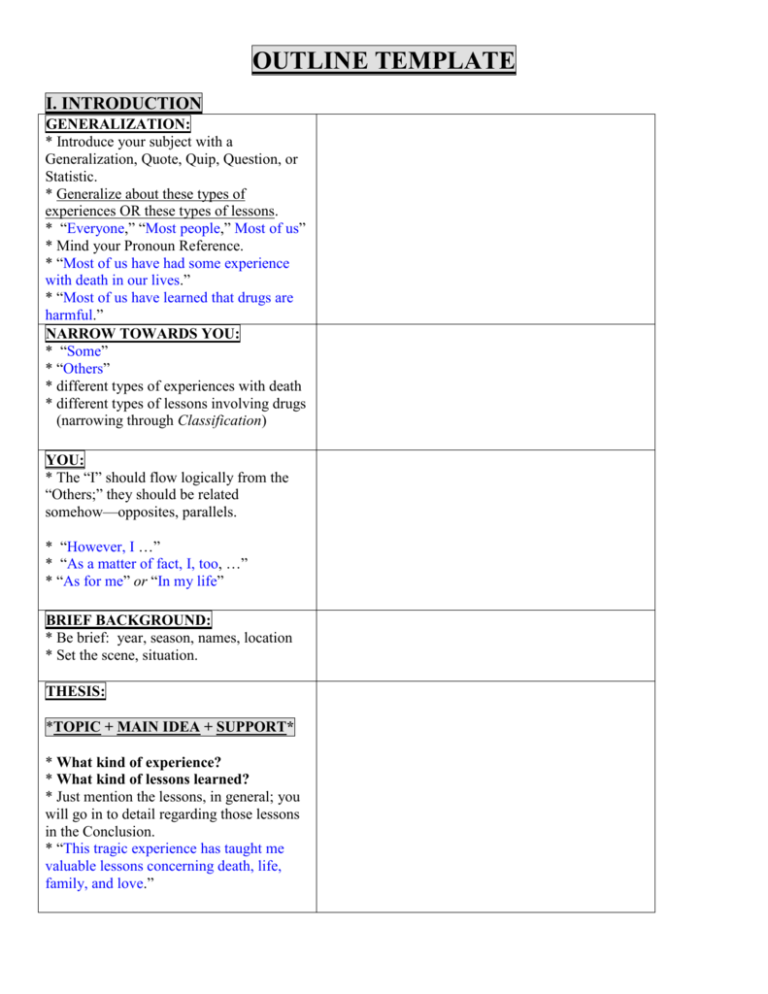
OUTLINE TEMPLATE I. INTRODUCTION GENERALIZATION: * Introduce your subject with a Generalization, Quote, Quip, Question, or Statistic. * Generalize about these types of experiences OR these types of lessons. * “Everyone,” “Most people,” Most of us” * Mind your Pronoun Reference. * “Most of us have had some experience with death in our lives.” * “Most of us have learned that drugs are harmful.” NARROW TOWARDS YOU: * “Some” * “Others” * different types of experiences with death * different types of lessons involving drugs (narrowing through Classification) YOU: * The “I” should flow logically from the “Others;” they should be related somehow—opposites, parallels. * “However, I …” * “As a matter of fact, I, too, …” * “As for me” or “In my life” BRIEF BACKGROUND: * Be brief: year, season, names, location * Set the scene, situation. THESIS: *TOPIC + MAIN IDEA + SUPPORT* * What kind of experience? * What kind of lessons learned? * Just mention the lessons, in general; you will go in to detail regarding those lessons in the Conclusion. * “This tragic experience has taught me valuable lessons concerning death, life, family, and love.” II. BODY PARAGRAPHS # of PARAGRAPHS: * In this Descriptive-Narrative Essay (as well as the Process Essay to come), the number of Body paragraphs is NOT fixed. * In the other essays, you will write 5 total paragraphs: Intro., 3 Body, Conclusion. * However, here, you will write an Intro. and a Conclusion and then break the Body into phases: * Perhaps beginning, middle, end. * Perhaps at the funeral home, in the car, at the cemetery. ** Please make sure that you do NOT have one long Body paragraph. ORDER: * Tell your story in chronological order: * time sequence, linear progression * Use transitions: next, then, afterwards ** VERBS = past tense ** NO background in the Body—get to the story immediately after the Thesis. “DESCRIPTIVE” NARRATION: * Be SPECIFIC. * Use details that appeal to the senses. * Use descriptive adjectives and adverbs. * Use the proper term—the exact word. V. CONCLUSION FULL CIRCLE: * Refer to opening generalization, scenario. * Refer to your purpose. ** Do NOT merely cut-&-paste your Introduction THESIS: * Repeat thesis (not exact words). * Repeat the reasons/types/traits. LESSONS: *** Explain in detail the lessons learned from the experience. *** You mentioned them, in general, in the Thesis Statement. *** Now explain them in full here. CLINCHER SENTENCE: * Write a single sentence to signal the end to this essay. * Make it relevant to the essay’s topic, purpose, audience. * If, for example, you just wrote a story about the death of a father-figure, then end with a statement that refers to role models, death, and admiration. * “If more people were like Sergeant Williams, then the world would be a much better place.”

